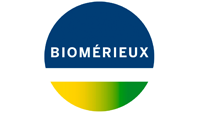“Global-PPS”, a survey of antibiotic use and bacterial resistance in hospitals worldwide, tops the 200,000 patients
09 May, 2019Marcy l'Étoile (France) & Antwerp (Belgium) – April 15, 2019 – bioMérieux, a world leader in the field of in vitro diagnostics, and the Laboratory of Medical Microbiology at the University of Antwerp announced at ECCMID (European Congress of Clinical Microbiology & Infectious Diseases) the 2018 results of the Global Point Prevalence Survey (GLOBAL-PPS)1, a study of antibiotic use and antimicrobial resistance (AMR) in hospitals around the world. Since its launch in 2015, this survey has been conducted in nearly 800 hospital centers, in 80 countries and has collected data from over 200,000 hospitalized patients.
The GLOBAL-PPS is a survey of unprecedented scope that is repeated each year, gathering vital information on antibiotic prescribing and bacterial resistance to these treatments. It enables the participating hospitals to evolve in their antibiotic prescribing practices and implement actionable plans to encourage appropriate use of antibiotics as a means of combatting AMR. Through the quality of the collected data, it is possible to compare findings within a single center and among different centers, leading to the development of improvement plans at the hospital level or even at the national level.
In 2018, bioMérieux and the University of Antwerp awarded GLOBAL-PPS scholarships to three healthcare professionals from the Philippines, Brazil and Egypt. These scholarship recipients recently spent three weeks at the University of Antwerp, following an Antimicrobial Stewardship-focused training course and working closely with the GLOBAL-PPS organizers.
“We were surprised of the continued widespread use of mainly broad-spectrum antibiotics in the 2018 GLOBAL-PPS, that were mainly prescribed for empirical treatment, illustrating the lack of diagnostics to document infections. Antibiotic guidelines were still missing in many hospitals in Low and Middle Income Countries (LMIC), and, if available, compliance was unsatisfactory. Another striking result was duration of peri-operative antibiotic prophylaxis: more than one day in about 80% of surgical patients in LMIC. Clearly, there is a need for training, and we will develop a dedicated e-learning course in 2019, enabling stewardship activities based on the GLOBAL-PPS results”, says Professor Goossens, leader of the GLOBAL-PPS project.
“As a global leader in microbiology, bioMérieux develops pioneering diagnostic solutions reducing the spread of resistant bacteria through optimized antibiotic use. We are very proud of supporting the GLOBAL-PPS from its early start because it provides hospitals around the world with information on antibiotic consumption and resistance rates. The data collected by the GLOBAL-PPS are pivotal to implement concrete and effective actions to reduce inappropriate use of antibiotics as a means to curb bacterial resistance”, says Mark Miller, Executive Vice President, Chief Medical Officer of bioMérieux.
The GLOBAL-PPS has been the subject of several major publications, including a paper in The Lancet Global Health2, co-authored by the coordinating team of the University of Antwerp, Prof. Herman Goossens and Dr. Ann Versporten, GLOBAL-PPS participants and bioMérieux’s medical experts. Furthermore, the survey is now recognized by major international organizations (WHO, Doctors Without Borders, CDDEP, IDSA, BSAC...). In 2019, ten posters and two oral presentations about the GLOBAL-PPS were presented by participating hospitals at the ECCMID congress.
In 2019, the GLOBAL-PPS will be repeated for the 5th consecutive year. It will include a new module on healthcare-associated infections (HAIs). This new module is an additional helpful tool to support hospitals in deploying their action plans to improve the appropriate use of antibiotics.
About the Laboratory of Medical Microbiology of the Antwerp University
The Laboratory of Medical Microbiology (LMM) of the University of Antwerp, headed by Professor Dr. Herman Goossens, has a world reputation in studying antibiotic use and resistance, as well as on the development of rapid diagnostic solutions by identifying and tapping the potential of newly emerging technologies for diagnostic applications. It houses research teams with expertise in molecular diagnostics, antibiotic use and resistance.
The LMM coordinates several ambitious projects, such as VALUE-Dx, a European Public-Private Partnership to fight antimicrobial resistance through diagnostics, GLOBAL-PPS, the Global Point Prevalence Survey of Antimicrobial Consumption and Resistance, PREPARE, the Platform for European Preparedness Against (Re-) emerging Epidemics, and ND4ID, a project on New Diagnostics for Infectious Diseases.
The LMM is also the central coordinating laboratory for LAB-Net, the laboratory network within COMBACTE-Net (Combatting Bacterial Resistance in Europe), that is composed of several hundred diagnostic microbiology laboratories in more than 40 European countries, and many specialized research microbiology laboratories.

